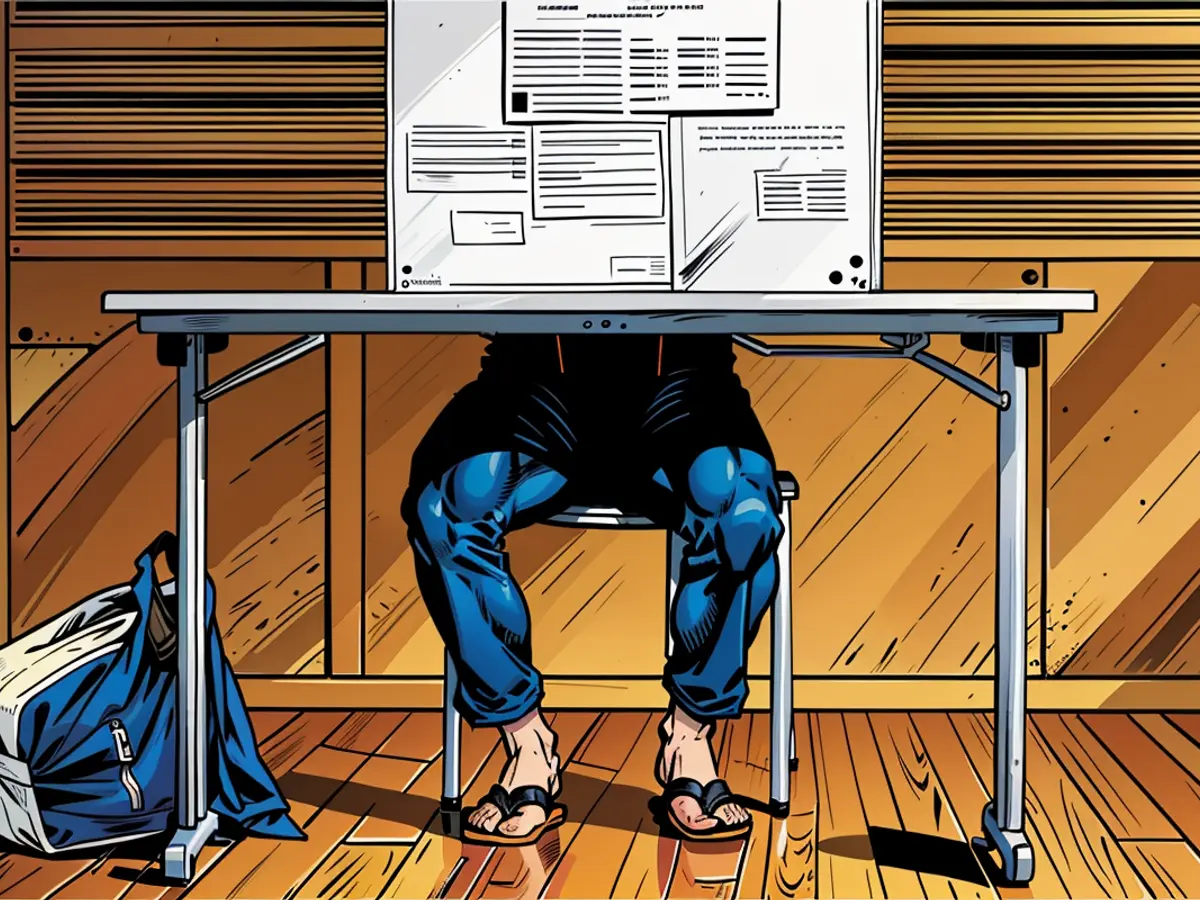Upcoming elections in Europe: - Voter turnout has been considerably lower in the southwest compared to the 2019 elections.
This morning, millions of people in Baden-Württemberg have had the chance to vote in the municipal and European elections. However, there appears to be a lower turnout for the European election compared to five years ago.
By 2 PM, only 25.7% of eligible voters had cast their ballots. This marks a decrease of 3.9 percentage points from the same time in 2019, although the votes of absentee voters have not been counted. On Sunday, State Electoral Commissioner Cornelia Nesch announced this update.
The statistics are derived from a survey of polling stations. In 2019, the turnout was 29.6% at the same time. Once mail-in votes are taken into account, we'll hear the final count together with the preliminary official results later.
Nesch urged all eligible citizens to cast their votes, reminding us that voting locations are still open until 6 PM.
In Baden-Württemberg, about 8.6 million people are invited to vote in local and regional elections. In the Stuttgart region, people will also determine the makeup of the regional assembly.
For the European election, 7.8 million people are eligible to vote nationwide. Approximately 830,000 citizens from other EU countries reside in the area; they can either vote in their respective countries or in Germany.
Predicting voter turnout in communal elections at the moment remains uncertain. The Stuttgart Statistical Office predicts a 53.2% turnout for the city council elections - that's a decrease of 4.3 percentage points from 2019. Both figures include the mail-in ballots.
Several state politicians cast their votes on Sunday morning. Winfried Kretschmann, the Minister President of Baden-Württemberg (Greens), voted in a polling station in the Sigmaringen district of Laiz, accompanied by his wife Gerlinde. Thomas Strobl, Minister of the Interior and Deputy Minister President (CDU), also voted—he chose the Heilbronn Monastery.
Manuel Hagel, the CDU State Chairman, voted in the Ehingen district of Nasgenstadt (Alb-Donau-Kreis), with his wife Franziska and their three children. Hagel, who is also the leader of the CDU parliamentary group in the state parliament, has been suggested as a possible future leader of the CDU in the southwest for the 2026 State Election. The CDU has been in a coalition with the Greens in the state since 2016.
The results of the European election will be revealed in the evening, while results of the communal election will follow later. While voters have a single vote in the European elections, the bewilderingly complex local elections may take days to completely parse as voters can have dozens of votes to allocate among candidates and lists.
In larger cities in the state, ballot counting won't begin until Monday. On Sunday, election volunteers are preoccupied with counting the votes from the simultaneous European election.
A milestone for young voters: since 2019, 16- and 17-year-olds can participate in local elections. In this year's European election, they've had their first opportunity to cast a vote. In the local election, this age group can now run for municipal councils, district councils, and town councils for the first time.
Find information about the European election from the Interior Ministry. Get information about the local election from the State Center for Political Education. View the results of the European election in 2019 in Baden-Württemberg. Review the results of the local elections in 2019 in Baden-Württemberg. Check out the State Statistical Office's dashboard for the European election. Check out the Interior Ministry's information on the local election.
Read also:
- Despite lower turnout in the southwest compared to 2019, people in Baden-Württemberg voted in municipal and European elections today.
- The European election turnout in Baden-Württemberg is lower than five years ago, with only 25.7% of eligible voters having voted by 2 PM.
- Erauelf Million people in Baden-Württemberg are eligible to vote in local and regional elections, including the Stuttgart region, while 7.8 million people are eligible for the European election nationwide.
- Winfried Kretschmann, the Minister President of Baden-Württemberg (Greens), and Thomas Strobl, Minister of the Interior and Deputy Minister President (CDU), were among the state politicians who voted in the elections today.
- In the upcoming 2026 state election, Manuel Hagel, the CDU State Chairman, is being suggested as a possible future leader of the CDU in the southwest.
- Young voters aged 16 and 17 have had their first opportunity to vote in a European election and can now also run for municipal, district, and town councils in local elections.








